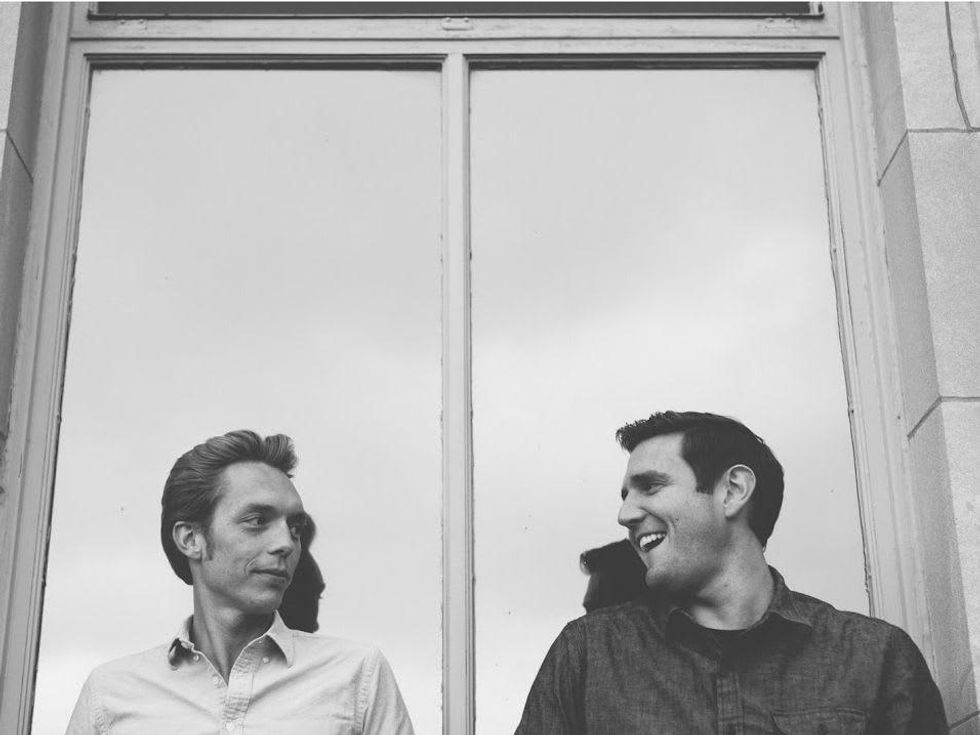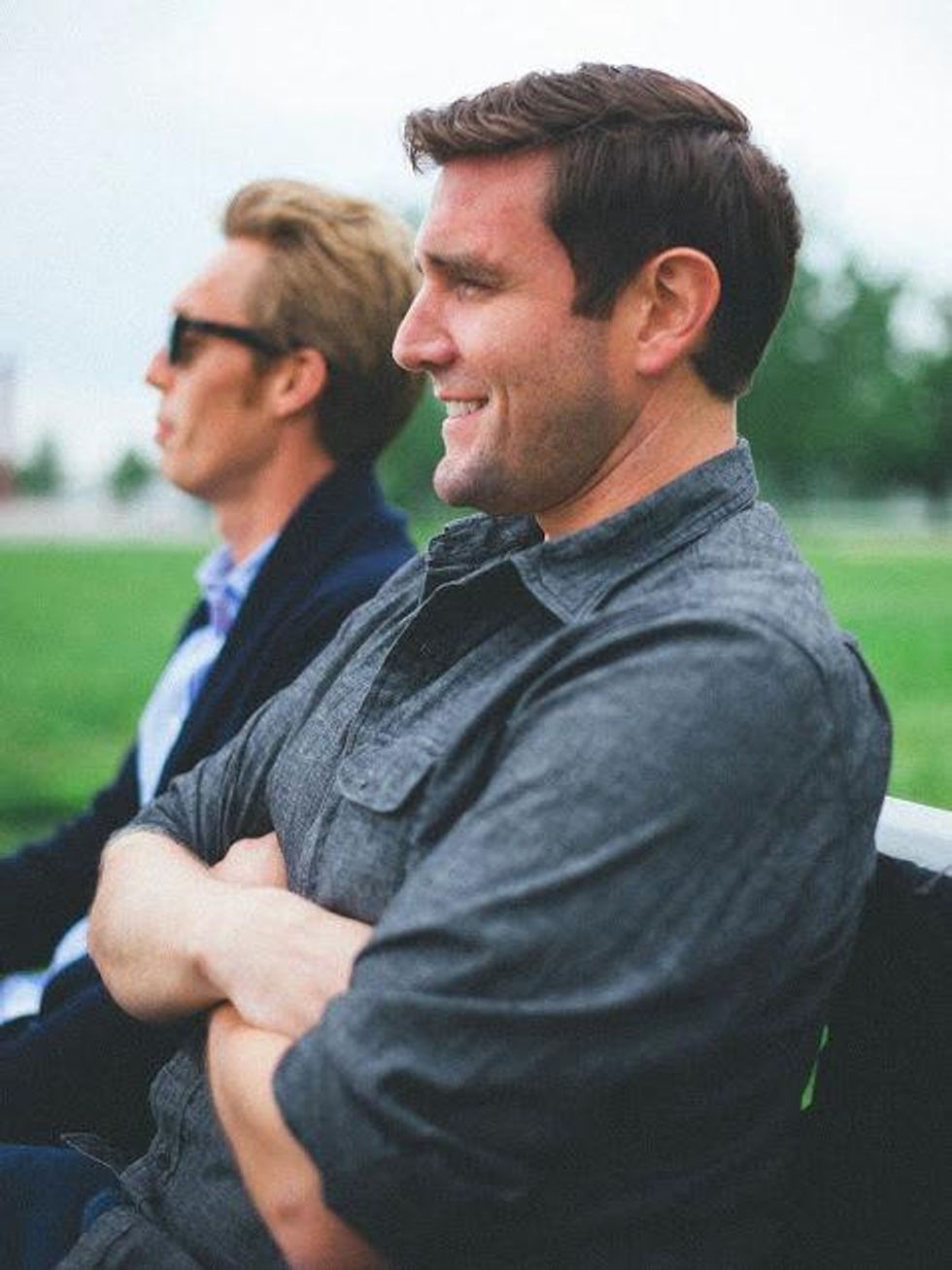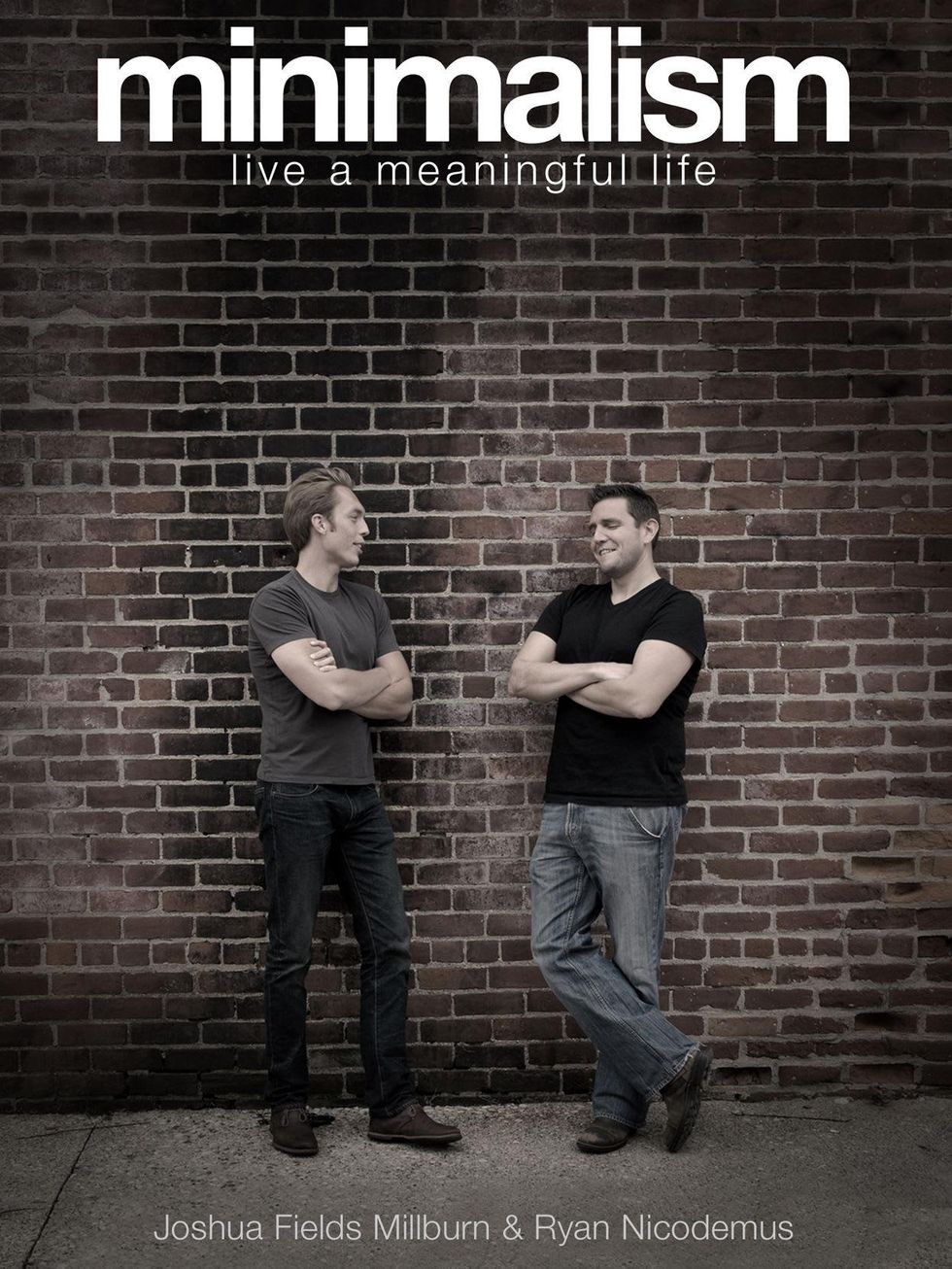Less Is More
Minimalists Josh Millburn and Ryan Nicodemus rid the world of excess on the path to happiness
The American Dream is as institutional to the United States as baseball, George Washington and apple pie. But Josh Millburn and Ryan Nicodemus found that six-figure incomes, cavernous houses and luxury cars were making them miserable.
So they threw it all out.
The authors of the website The Minimalists, Millburn and Nicodemus are part of a growing number of people embracing a lifestyle that eschews excess in favor of value. They’re on tour right now to promote their new book, Minimalism: Live a Meaningful Life, which is part autobiography and part guidebook on how to become healthier physically, mentally and emotionally.
“Our priorities are what we do,” Millburn says. “Facebook is our priority if we’re on it all the time. It’s about identifying priorities and doing them.”
The strategy, according to the website, is to find “freedom from the trappings of the consumer culture we’ve built our lives around.” Although minimalism often entails ditching material possessions, stuff isn’t necessarily the enemy. “Today’s problem seems to be the meaning we assign to our stuff,” reads the website.
The path to minimalism came to the duo from years as corporate execs, making tons of money and “living the dream.” But they were unhappy.
“It got to a point, in my late 20s, when I was very focused on identity and accumulation of perceived wealth,” Millburn says. “I had all of these things around me. I was unhealthy, my relationships were bad, and I didn’t know what was important in my life.
“I had all this stuff, and I focused my time on getting these things. I realized, maybe I have to clear the path in order to a) figure out what’s important and b) focus on what’s important.”
Over the course of several years, Millburn and Nicodemus left their high-paying jobs; sold their homes and most of their stuff; and worked, small step by small step, on becoming happier, healthier people.
Then they started talking about it on The Minimalists, and within a year, they had more than 100,000 visitors a month reading about their efforts to grow as people by working on their health, passions and relationships. And they’ve found that the people listening are all over the demographic map.
“We’ve been all over the place and met people will all sorts of backgrounds,” Millburn says. “There was an 11-year-old that brought his dad in Albuquerque and an 83-year-old grandmother we met in St. Louis. I’d like to think that the way we talk about minimalism resonates, but I think it has a lot to do with a response to our culture.”
Minimalism goes beyond just getting rid of your stuff; it’s about making better, more meaningful choices on the path to self-improvement. The duo says the hardest thing is realizing that the long-term gain is worth the short-term discomfort.
“It’s a very American thing to want to fix a problem right away,” Millburn says. “If that’s possible, that’s great. But I’m looking for more long term, to be doing something consistently.”
In their book, they write about the five main components of how to improve yourself: health, relationships, growth, passions and contribution. Everything you do should add value to at least one of those cores; otherwise it is a meaningless action.
“My health is my priority, but just because we pay it lip service doesn’t mean anything,” Millburn says. “Our priorities are what we do. Facebook is our priority if we’re on it all the time. It’s about identifying priorities and doing them.”
Millburn and Nicodemus say that the book and website are supposed to help guide people toward improvement, but, at the end of the day, someone has to want to change.
“You have to question what you’re doing and how to add value to that,” Millburn says. “It’s not about reaching a pinnacle or stopping. It’s about constantly evolving and changing, so you have to constantly question.”
---
The Minimalists appear at Half Price Books on Northwest Highway at 7 pm, March 18, for a talk and reading.



